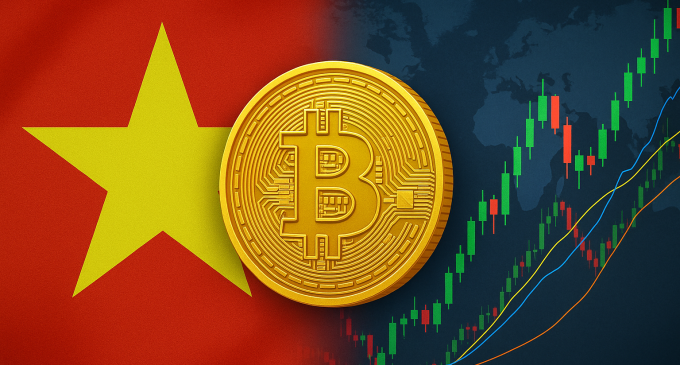
Introduction
Vietnam has taken a historic step in the cryptocurrency sector by approving its first-ever regulated crypto trading program. This move represents a landmark decision for a country that has previously been cautious about digital assets and their role in its financial system. The decision is expected to not only reshape Vietnam’s domestic market but also have ripple effects across the global cryptocurrency industry. As governments worldwide grapple with how to regulate digital assets, Vietnam’s approach is being watched closely by both regional neighbors and international stakeholders.
The Road To Regulation In Vietnam
For years, Vietnam maintained a restrictive stance on cryptocurrency usage. While citizens actively traded and invested in digital currencies such as Bitcoin and Ethereum, the legal framework was ambiguous. Transactions involving crypto for goods and services were discouraged, and banks were prohibited from offering crypto-related services.
Despite these restrictions, Vietnam consistently ranked among the top countries in global crypto adoption indexes. This contradiction highlighted the need for a comprehensive regulatory framework that could bring structure to a rapidly growing and informal market. The government’s decision to approve a regulated crypto trading program reflects an acknowledgment of both the risks and the opportunities presented by digital assets.
Key Features Of The New Trading Program
The newly approved program is designed to balance innovation with investor protection. Some of the key features include:
Licensing Framework: Exchanges operating in Vietnam will now be required to obtain official licenses, ensuring compliance with local laws.
KYC and AML Standards: The program emphasizes Know Your Customer (KYC) and Anti-Money Laundering (AML) protocols, aligning Vietnam with international regulatory practices.
Investor Protection Measures: Safeguards such as segregated accounts and transparent trading policies will be mandated to protect retail investors.
Government Oversight: The State Bank of Vietnam, in collaboration with the Ministry of Finance, will oversee the operations of regulated platforms.
These measures are aimed at creating a transparent and secure environment that encourages responsible trading while minimizing illicit activities.
Economic Significance For Vietnam
By legalizing and regulating crypto trading, Vietnam is positioning itself as a forward-thinking player in the global digital economy. The move is expected to attract significant foreign investment, particularly from crypto-focused startups and fintech firms seeking regulatory clarity in Southeast Asia.
Furthermore, the program could boost tax revenues by bringing crypto-related activities into the formal economy. Analysts predict that Vietnam could see billions of dollars in annual trading volume flow through its regulated platforms, creating new jobs and opportunities in technology, finance, and compliance sectors.
Implications For Retail Investors
For retail investors in Vietnam, the regulated program provides a safer entry point into cryptocurrency markets. Previously, many relied on unregulated exchanges, peer-to-peer platforms, or even offshore services, which carried high risks of fraud, scams, and sudden closures.
With regulated exchanges, investors will benefit from greater transparency, official dispute resolution mechanisms, and a degree of accountability that was previously absent. This shift could encourage more Vietnamese citizens to participate in crypto markets with confidence.
Vietnam’s Role In The Regional Crypto Landscape
Southeast Asia has become a hotbed of cryptocurrency activity, with countries like Singapore, Thailand, and the Philippines leading the way in regulatory innovation. Vietnam’s decision to approve a regulated trading program positions it alongside these nations and strengthens the region’s reputation as a hub for digital finance.
Neighboring countries will be closely monitoring Vietnam’s rollout. If successful, Vietnam could inspire similar regulatory frameworks across the region, creating a more integrated and competitive Southeast Asian crypto ecosystem.
Global Impact And Investor Sentiment
On the global stage, Vietnam’s move is significant because it reflects a broader shift toward acceptance of cryptocurrencies by national governments. As one of the most populated countries in Southeast Asia with a rapidly growing economy, Vietnam’s embrace of digital finance could set a precedent for emerging markets worldwide.
International investors are likely to view Vietnam as an attractive destination for blockchain projects, ICOs, and digital asset innovation. The introduction of regulatory clarity may encourage multinational firms to establish partnerships or launch projects in the country.
The Regulatory Balance: Risks And Challenges
While the approval of a regulated crypto trading program is a positive development, it also comes with challenges. Key concerns include:
Implementation Speed: Developing the infrastructure to support regulated exchanges may take time.
Enforcement: Ensuring that all market participants comply with KYC, AML, and other standards will require significant oversight.
Market Volatility: Crypto markets remain inherently volatile, and regulation alone cannot eliminate investment risks.
Innovation vs. Control: Striking the right balance between fostering innovation and maintaining strict oversight will be an ongoing challenge.
These issues will test Vietnam’s ability to maintain a stable yet innovative trading environment.
The Future Of ICOs In Vietnam
One of the most intriguing aspects of Vietnam’s decision is its potential impact on Initial Coin Offerings (ICOs). By regulating trading platforms, Vietnam may create an environment where ICOs can be launched under clear rules, ensuring that investors are protected from fraudulent projects.
A regulated ICO market could position Vietnam as a regional hub for blockchain startups seeking funding. This would not only enhance Vietnam’s standing in the global crypto economy but also provide local entrepreneurs with access to new sources of capital.
Blockchain Adoption Beyond Trading
The approval of this program may also accelerate blockchain adoption in non-financial sectors of Vietnam’s economy. Industries such as supply chain management, agriculture, real estate, and healthcare could benefit from blockchain integration. By legitimizing the technology through financial regulation, Vietnam may encourage broader experimentation and adoption across multiple industries.
Conclusion
Vietnam’s approval of its first regulated crypto trading program marks a turning point in both national and global crypto regulation. By providing a legal and secure framework for digital asset trading, the government is paving the way for greater innovation, investment, and participation in the digital economy.
While challenges remain, the decision underscores Vietnam’s willingness to embrace change and adapt to a rapidly evolving financial landscape. As the program unfolds, its success or failure will be closely studied by other nations seeking to strike a balance between opportunity and risk in the cryptocurrency sector.







There are no comments at the moment, do you want to add one?
Write a comment